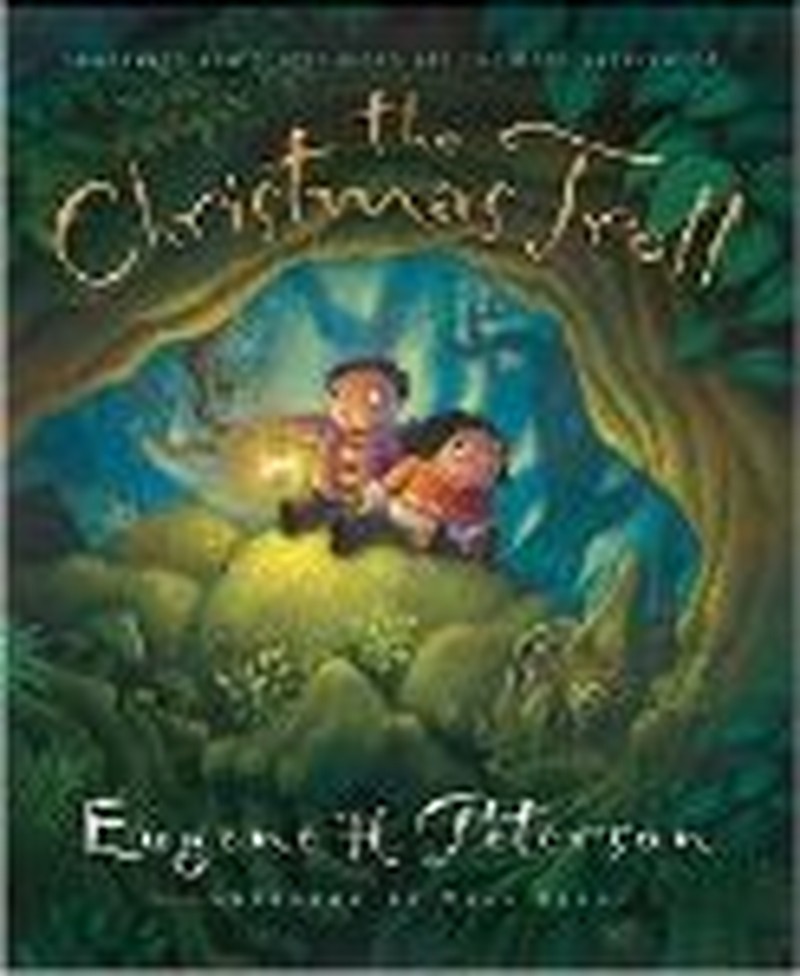Max Lucado and Eugene Peterson Discuss "The Christmas Troll"
- Staff FaithTalk Magazine
- Published Nov 30, 2004

Max Lucado, world-renowned author and speaker, has published dozens of works of Christian literature that have led people to a deeper relationship with Christ. Eugene Peterson’s many works, including "The Message," have likewise touched millions of hearts. Both authors have now broadened their influence — all the way into the hearts of little ones.
On a Sunday morning over a decade ago, Max Lucado decided to follow a friend’s suggestion that he write a children’s book. Along came "Just In Case You Ever Wonder," and 10 years and millions of copies later, Max’s world of Wimmecks has taught children everywhere that God loves them just the way they are. Eugene also has created a new world — one in which trolls (who are ugly but nice) teach spiritual lessons to children without even saying a word.
Eugene has been telling his children and grandchildren stories for years, and now his first children’s book, "The Christmas Troll" (NavPress), is available. In it, little Andrew and Lindsay learn that the best gifts are ones that don’t come wrapped in sparkly paper and that sometimes the gifts are often much more beautiful than they first appear. In the following conversation, the two authors discuss this new world Eugene has created, the importance of story, and the God who tells stories to us all.
Max: How was the story of The Christmas Troll born? Do you know children like Andrew and Lindsay?
Eugene: Andrew and Lindsay are my first grandchildren. The relationship between them in the story is pretty much the way it really is. The story began simply as a story I told them one evening at bedtime when my wife, Jan, and I were visiting them at Christmas. The character “Jonathan” was their bullying neighbor kid, and the woods were behind their house. I’ve been telling these stories all my life to my grandchildren, so stories are a part of our lives. Most of the stories I tell are troll stories. They are very elastic — you can do anything you want with them.
Max: Eugene, the story is so well done — the way the kids sat on the stump, only to be on the troll’s tummy. You can see kids’ eyes just pop open! Do you just keep these stories in the back of your mind and unpack them when the grandkids come to the house?
Eugene: No, they’re usually invented on the spot.
Max: What prompted you to liken Jesus to a troll?
Eugene: The truth is that Jesus as a troll was one of those total surprises sometimes given to storytellers. It just popped in — a sheer gift. I suppose you could say that Jesus is always different from what we expect. We have stereotypes of a nice Jesus, but in The Christmas Troll, the “nice” comes in the form of what we had always thought was “ugly” — surprise!
Max: What’s the significance of the deep, dark woods with the possible lurking creatures?
Eugene: The woods are a wonderful metaphor for mystery and danger. Stories without mystery and danger aren’t much good, are they? Life is full of dark, scary places that often become the places of insight and discovery and epiphany.
Max: Jonathan’s character creates some unique tension within the story. Do you think the kind of impatience we can see in him is more common among children today than when you were growing up?
Eugene: When I was growing up, we had a kid in the neighborhood just like Jonathan. In fact, the story of Jonathan opening all his presents ahead of time was derived from that kid. So I don’t think this impatience we see in the story is any more prevalent today. Children are just impatient; it goes with the territory of childhood.
Max: Why do you think it’s important to communicate spiritual truths to children in the form of story?
Eugene: Stories are the only kind of language that children are really interested in (and many adults too!). And to tell the truth, I wasn’t trying to communicate a “spiritual truth.” All I was doing in the story was gathering together the stuff of my grandkids’ lives — Jonathan, the woods, the Andrew/Lindsay relationship, Christmas — for some bedtime amusement. The “truth” was inherent in the story, not imposed on it.
Max: The father in the story speaks of God as giving gifts with great freedom, generosity, and magnanimity. How does this reflect your own view of God?
Eugene: Whatever theology is there wasn’t contrived; it was inherent in the way we live. I’m a grandfather, not a theologian in disguise!
© 2004 FaithTalk Magazine. All rights reserved. Used with permission.



















